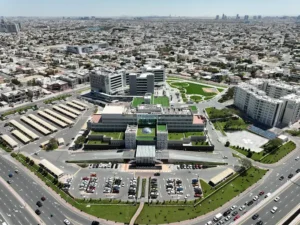Dubai is home to some of the best Islamic banks in the world. Unlike traditional banks, Islamic banks operate based on Islamic principles without involving any interest or riba. They offer various products and services that cater to the needs of their customers. If you’re looking for the best Islamic banks in Dubai, this guide will provide you with everything you need to know.
Best Islamic Banks in Dubai
1. Abu Dhabi Commercial Bank
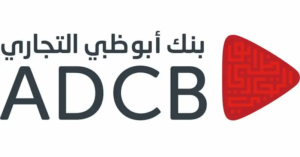 After the mergers of Emirates Commercial Bank, Federal Commercial Bank, and Khaleej Commercial Bank, which was founded in 1975, Abu Dhabi Commercial Bank (ADCB) was created in 1985 as a public shareholding company with limited liability. ADCB, Union National Bank, and Al Hilal Bank declared their intention to consolidate into one organization in January 2019. Al Hilal Bank continues to function as a separate Islamic bank while being merged under the new group organization. However, the combined bank continues to operate as ADCB. Retail banking, loans, cards, and wealth management are just a few of the services and products that ADCB provides.
After the mergers of Emirates Commercial Bank, Federal Commercial Bank, and Khaleej Commercial Bank, which was founded in 1975, Abu Dhabi Commercial Bank (ADCB) was created in 1985 as a public shareholding company with limited liability. ADCB, Union National Bank, and Al Hilal Bank declared their intention to consolidate into one organization in January 2019. Al Hilal Bank continues to function as a separate Islamic bank while being merged under the new group organization. However, the combined bank continues to operate as ADCB. Retail banking, loans, cards, and wealth management are just a few of the services and products that ADCB provides.
Abu Dhabi Commercial Bank Website
2. Abu Dhabi Islamic Bank
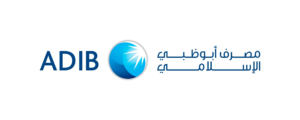 In accordance with Sharia law, Abu Dhabi Islamic Bank was founded on May 20, 1997, as a public joint stock corporation.
In accordance with Sharia law, Abu Dhabi Islamic Bank was founded on May 20, 1997, as a public joint stock corporation.
Being one of the best banks in the UAE, ADIB offers a variety of facilities to support young football players, staff, cricket fans, and financial education. Personal, Private, Business, Private, and Corporate Banking are some of the goods and services offered by ADIB.
Abu Dhabi Islamic Bank Website
3. Ajman Bank
 The first Islamic bank in the Emirate of Ajman, Ajman Bank was founded in 2007 and has locations around the UAE. Its goal is to become one of the most well-known financial services companies in the UAE and the rest of the region.
The first Islamic bank in the Emirate of Ajman, Ajman Bank was founded in 2007 and has locations around the UAE. Its goal is to become one of the most well-known financial services companies in the UAE and the rest of the region.
Ajman Bank offers its quality through a variety of goods and services, such as investor relations, consumer banking, investment banking, and Treasury and capital markets.
4. Al Hilal Bank
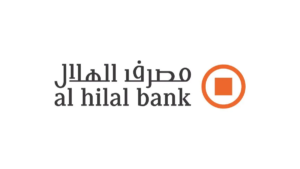 The world’s first credit card with a digital compass, the Laha Al Hilal credit card, the first credit card in the UAE with the ability to be scented with the perfume of your choice, and the Egrab mobile branch and money station are just a few of the products that Al Hilal Bank, a progressive Islamic bank, is known for promoting.
The world’s first credit card with a digital compass, the Laha Al Hilal credit card, the first credit card in the UAE with the ability to be scented with the perfume of your choice, and the Egrab mobile branch and money station are just a few of the products that Al Hilal Bank, a progressive Islamic bank, is known for promoting.
Al Hilal offers a variety of products and services, including personal, wholesale, and Treasury banking, as part of its objective to continuously set new standards that redefine Islamic banking.
5. Dubai Islamic Bank
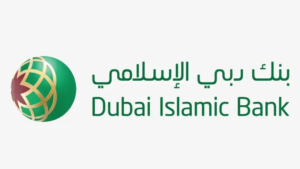 The largest Islamic bank in the United Arab Emirates and one of those listed on the Dubai Financial Market, Dubai Islamic Bank was established in 1975. The third-largest Islamic bank in the world is Dubai Islamic Bank.
The largest Islamic bank in the United Arab Emirates and one of those listed on the Dubai Financial Market, Dubai Islamic Bank was established in 1975. The third-largest Islamic bank in the world is Dubai Islamic Bank.
Dubai Islamic Bank provides goods and services such as personal banking, business banking, corporate banking, Treasury and institutional banking, investment banking, etc. with the aim of making Islamic Finance the norm rather than an alternative to traditional banking around the world. UAE consistently provides its clients with dependable financial services, helping it to often stand out from the competition.
6. Emirates Islamic Bank
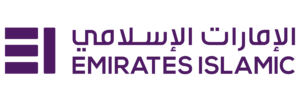 Emirates Islamic Bank was established in 2004 and provides services in accordance with Sharia law. Emirates Islamic offers its consumers transparent transactions by utilizing Islamic financial instruments including Murabahah, Ijarah, and Takaful. With the goal of providing customers with conventional financial solutions, Emirates Islamic offers a wide range of goods and services.
Emirates Islamic Bank was established in 2004 and provides services in accordance with Sharia law. Emirates Islamic offers its consumers transparent transactions by utilizing Islamic financial instruments including Murabahah, Ijarah, and Takaful. With the goal of providing customers with conventional financial solutions, Emirates Islamic offers a wide range of goods and services.
7. Emirates NBD
 The banking and financial sector of the United Arab Emirates was modeled after Emirates NBD, which was founded in October 2007. In addition to playing a significant role in Islamic Banking, the Global Market, Treasury, Investment Banking, etc., Emirates NBD also holds a special place in the corporate and retail banking sectors in the United Arab Emirates.
The banking and financial sector of the United Arab Emirates was modeled after Emirates NBD, which was founded in October 2007. In addition to playing a significant role in Islamic Banking, the Global Market, Treasury, Investment Banking, etc., Emirates NBD also holds a special place in the corporate and retail banking sectors in the United Arab Emirates.
8. First Abu Dhabi Bank
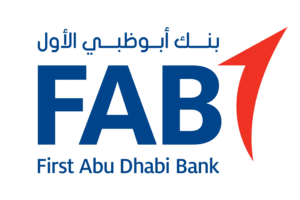 One of the biggest financial organizations in the UAE is the First Abu Dhabi Bank, also known as FAB. It was founded in 1979, with offices in Abu Dhabi, and provides customers around the world with the fundamental financial services they require. Its goal is to always put the customer first by inspiring them to reach their objectives.
One of the biggest financial organizations in the UAE is the First Abu Dhabi Bank, also known as FAB. It was founded in 1979, with offices in Abu Dhabi, and provides customers around the world with the fundamental financial services they require. Its goal is to always put the customer first by inspiring them to reach their objectives.
FAB offers a variety of goods and services, such as business, personal, international, and corporate banking.
9. Mashreq Bank
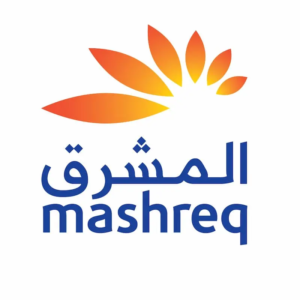 With its headquarters in Dubai, Mashreq Bank was established in 1967 as the Bank of Oman. It was the first bank to offer consumer loans as well as debit and credit cards. Mashreq works to offer consumers cutting-edge goods and services as part of its aim to be the region’s progressive bank.
With its headquarters in Dubai, Mashreq Bank was established in 1967 as the Bank of Oman. It was the first bank to offer consumer loans as well as debit and credit cards. Mashreq works to offer consumers cutting-edge goods and services as part of its aim to be the region’s progressive bank.
Mashreq Bank offers a wide range of goods and services, including personal banking, business banking, corporate banking, and credit cards for shopping, traveling, watching movies, and other things, as part of its expanding retail presence in places like Egypt, Qatar, Bahrain, and Kuwait.
10. Sharjah Islamic Bank
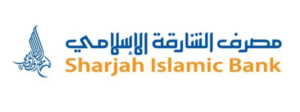 Sharjah Islamic Bank was established in 1976 and began adhering to Sharia laws in 2004. Bank of Sharjah offers a variety of goods and services, such as retail banking, corporate banking, investment banking, investor relations, etc., with the goal of being the bank of choice.
Sharjah Islamic Bank was established in 1976 and began adhering to Sharia laws in 2004. Bank of Sharjah offers a variety of goods and services, such as retail banking, corporate banking, investment banking, investor relations, etc., with the goal of being the bank of choice.
Closing Thoughts on the Best Islamic Banks in Dubai
Choosing the best Islamic bank in Dubai requires thorough research and an understanding of your financial goals. Consider factors such as the bank’s reputation, services offered, charges, Sharia compliance, convenience, and accessibility when making your decision. Speak with experienced financial advisors to get professional guidance when opening a bank account, and enjoy the benefits of Islamic finance.
Frequently Asked Questions on the Best Islamic Banks in Dubai
What is the difference between Islamic and traditional banking?
Islamic banking has been gaining popularity in recent years as an alternative to traditional banking. The principles of Sharia law that form the basis of Islamic banking are designed to promote fairness, justice, and social welfare. This is achieved by prohibiting any form of interest or usury, as well as speculative and unethical investments.
One of the key differences between Islamic and traditional banking is how they operate. Islamic banks operate based on profit and loss-sharing principles, which means that both parties share the risk and reward in a transaction. This encourages the bank to work with its customers to ensure that the investment is successful and profitable, as both parties stand to benefit. In contrast, traditional banks offer loans with an interest or fixed rate that is paid back by the borrower regardless of profit or loss.
Another important difference is the focus on ethical and moral values. Islamic banking encourages economic activities that benefit the community and avoids any investments that may be harmful or unethical. This is in contrast to traditional banks, which may engage in activities that may not be ethical or moral, such as investing in arms manufacturing or tobacco companies.
Islamic banking also places a strong emphasis on transparency and accountability. This is achieved through the use of Sharia-compliant contracts, which are designed to ensure that all parties understand the terms and conditions of the investment. In addition, Islamic banks are required to have a Sharia supervisory board, which oversees all financial transactions to ensure that they comply with Islamic law.
In conclusion, while there are many similarities between Islamic and traditional banking, there are also some key differences. Islamic banking is based on the principles of fairness, justice, and social welfare, and operates based on profit and loss-sharing principles. It also places a strong emphasis on ethical and moral values transparency and accountability. These differences make Islamic banking an attractive alternative for those who are looking for a more socially responsible and ethical way of banking.
How many Islamic banks are in Dubai?
Dubai is one of the leading financial centers in the world, and Islamic banking is a significant part of its financial landscape. The city has been at the forefront of the global Islamic finance industry, with a robust regulatory framework and a supportive business environment that has attracted many international players.
Currently, there are ten full-fledged Islamic banks in Dubai, including Dubai Islamic Bank, Emirates Islamic Bank, Abu Dhabi Islamic Bank, Dubai Islamic Bank, Ajman Bank, Al Hilal Bank, Mashreq Bank, First Abu Dhabi Bank, Abu Dhabi Commercial Bank, and Sharjah Islamic Bank. These banks offer a range of products and services, including personal and business banking, wealth management, investment services, and more.
In addition to full-fledged Islamic banks, several conventional banks in Dubai offer Islamic banking services through dedicated Islamic banking windows or subsidiaries. These banks include HSBC Amanah, Standard Chartered Saadiq, and Citibank Islamic.
The growth of Islamic banking in Dubai has been impressive in recent years, with the sector expanding rapidly and attracting significant investments from around the world. The city’s strategic location, business-friendly environment, and strong regulatory framework have made it an attractive destination for Islamic finance institutions and investors alike.
Overall, the Islamic banking industry in Dubai is thriving, and the city is well-positioned to continue its growth and development as a global hub for Islamic finance.
How to choose the best Islamic bank in Dubai?
Choosing the best Islamic bank in Dubai is a crucial decision that requires careful consideration. With the plethora of options available, it can be a challenging task to select the right bank that meets your financial needs.
One of the first things to consider when choosing an Islamic bank in Dubai is the bank’s reputation. You want to ensure that you are banking with a reputable institution that has a strong track record of providing excellent customer service and financial stability.
Another important factor to consider is the range of services offered by the bank. Does the bank offer a wide range of products and services that meet your financial goals? Are they flexible and willing to work with you to achieve your financial objectives?
Charges are also an essential consideration when choosing an Islamic bank in Dubai. You want to ensure that the bank’s fees are reasonable and transparent, with no hidden fees that could impact your financial stability.
Convenience and accessibility are also crucial factors to consider when choosing an Islamic bank in Dubai. You want to choose a bank that is conveniently located and easily accessible, with branches and ATMs located throughout the city.
It’s also important to ensure that the Islamic bank you choose is Sharia-compliant. Sharia compliance is a critical aspect of Islamic banking, and it ensures that the bank’s products and services are in line with Islamic principles and values.
Finally, it’s always a good idea to speak with an experienced financial advisor to help you make an informed decision. A financial advisor can provide you with valuable insights and guidance to help you choose the best Islamic bank in Dubai that provides services that align with your financial objectives.
In conclusion, choosing the best Islamic bank in Dubai requires careful consideration of several factors. By doing your research, comparing different banks, and seeking the advice of an experienced financial advisor, you can make an informed decision that meets your financial goals and objectives.
Are all Islamic banks in Dubai Sharia-compliant?
Yes, all Islamic banks in Dubai are Sharia-compliant. This means that they adhere to the principles of Islamic finance, which are based on ethical and moral values. These principles prohibit any transactions that involve interest, uncertainty, or gambling. Instead, they promote risk-sharing and profit-sharing between the bank and its customers.
Islamic finance has become increasingly popular in recent years, not only in Dubai but also around the world. This is because it offers an alternative to conventional banking, which is often seen as exploitative and unfair. Islamic finance, on the other hand, is based on the concept of justice and fairness for all parties involved.
The Islamic banks in Dubai are subject to Sharia supervisory boards that monitor their activities to ensure they comply with Sharia principles. These boards are made up of Islamic scholars who have expertise in Islamic law and finance. They review the bank’s products, services, and operations to ensure they are in line with Sharia principles.
Sharia compliance is critical when choosing an Islamic bank in Dubai. It is important to ensure that the bank you choose is truly Sharia-compliant and not just using it as a marketing gimmick. You can do this by checking if the bank has a Sharia supervisory board and if it has been certified by a reputable Islamic finance organization.
Overall, Islamic banking in Dubai is a growing industry that offers a unique and ethical approach to finance. By choosing an Islamic bank, you can be sure that your money is being invested in a way that is consistent with your values and beliefs.
Who can open a bank account with an Islamic bank?
Opening a bank account with an Islamic bank in Dubai is a straightforward process. It is not limited to a particular religion or nationality. Islamic banks welcome customers from all walks of life, irrespective of their beliefs, culture, or background.
Islamic banking is based on the principles of fairness, transparency, and ethical conduct. Unlike conventional banks, Islamic banks operate without charging interest and instead offer profit-sharing arrangements. This means that the bank and the account holder share the profits and losses of the investment made with the funds deposited in the account.
When opening an account with an Islamic bank, the bank requires the necessary documents such as a valid ID, proof of address, and other requirements as per their policies. These requirements may vary from bank to bank, but they are generally similar to those of conventional banks. The bank then verifies the documents and opens the account after completing the necessary procedures.
It is important to note that some Islamic banks may require the account holder to maintain a minimum balance, which can vary depending on the type of account. This is to ensure that the account remains active and to cover any administrative costs associated with managing the account.
Additionally, some Islamic banks may charge monthly fees for the account. These fees can be avoided by choosing the right type of account that suits your financial needs and lifestyle. It is always advisable to check the bank’s fees before opening an account to avoid any surprises.
Overall, opening a bank account with an Islamic bank in Dubai is a great option for those looking for a banking system that aligns with their values and beliefs. With its focus on ethical conduct and transparency, Islamic banking offers a unique and rewarding banking experience.




